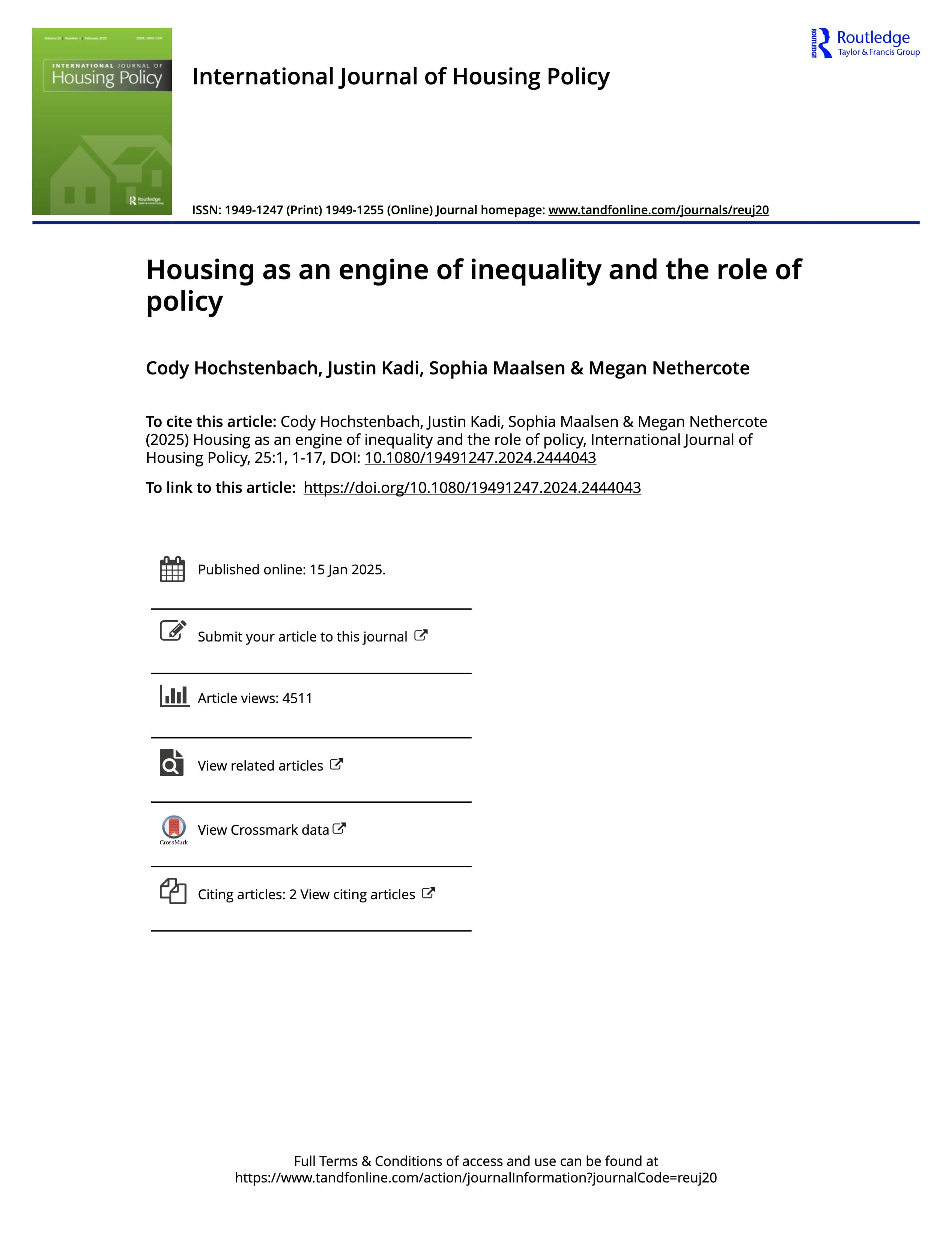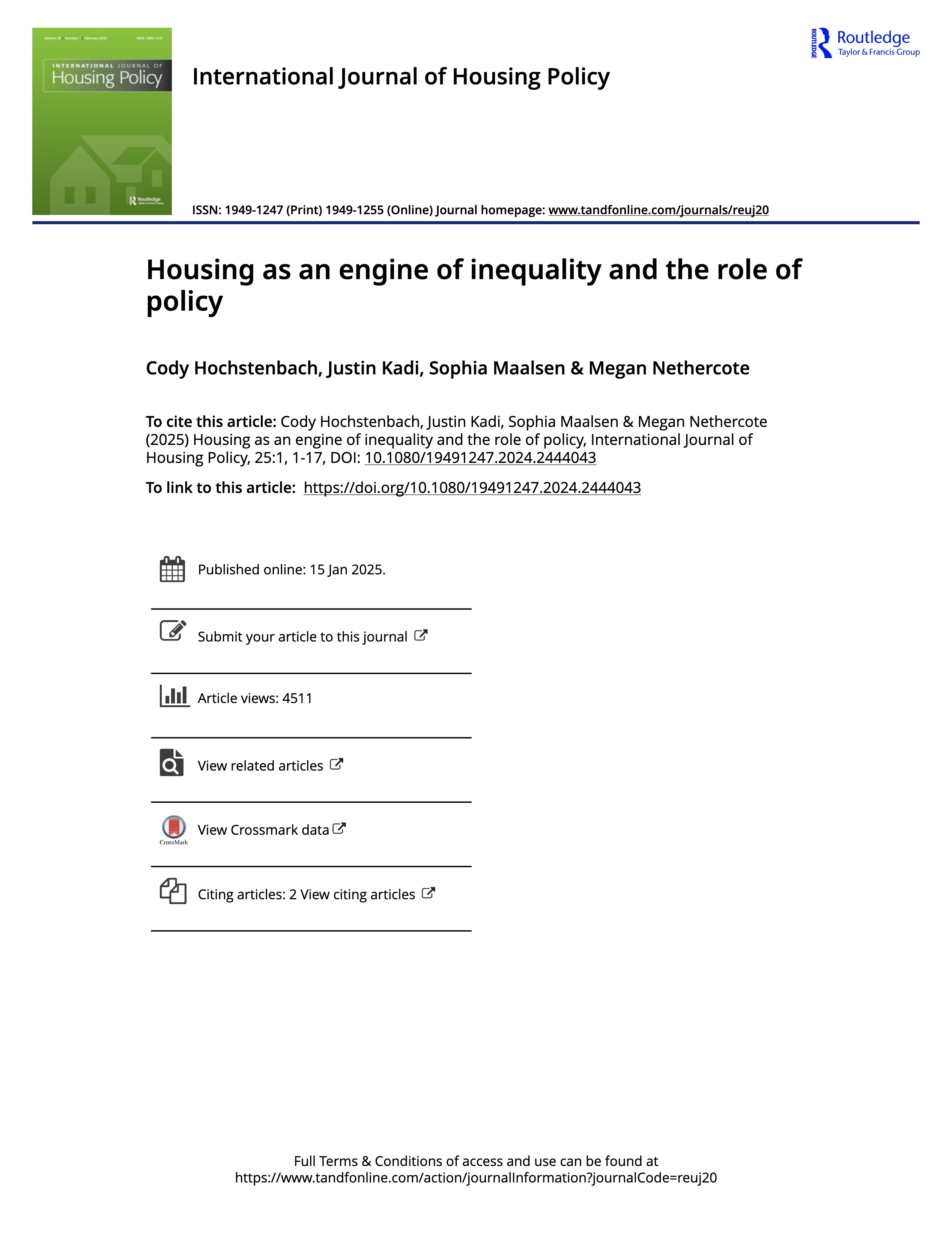AI-Generated Summary
Context and Overview
The article titled "Housing as an engine of inequality and the role of policy" is published in the International Journal of Housing Policy, a reputable platform that focuses on housing-related issues. The authors—Cody Hochstenbach, Justin Kadi, Sophia Maalsen, and Megan Nethercote—explore the socio-economic implications of housing policies across various countries, including Australia, the Netherlands, and the UK. Their research addresses the pressing issue of housing inequality, particularly how housing functions as a driver of socio-economic disparities.
The Housing Crisis
The authors argue that housing is not merely an outcome but also a significant engine of socio-economic inequality. In many cities globally, including those mentioned, there are frequent reports of a 'housing crisis.' For instance, in Australia, renters often have to move far from jobs and schools to find affordable accommodation, particularly after the COVID-19 pandemic, where even previously affordable regional towns have seen rising rents. In the Netherlands, significant housing protests occurred in late 2021, marking the largest since the 1980s, highlighting various issues such as homelessness and the growing divide between homeowners and renters. Similarly, in the UK, the government continues to promote homeownership despite many struggling to access it, especially in urban centers like London.
Wealth Disparities
The report reveals stark wealth divides, as skyrocketing house prices create a significant gap between homeowners and tenants. In 2017, the top 10% of wealthiest households in Australia, the US, and the UK held 45%, 53%, and 39% of total net housing wealth, respectively. In the Netherlands, this top 10% owned 40% of net housing wealth, while the bottom half of the population largely owned nothing or faced net mortgage debt. This inequality is compounded by the intergenerational transmission of wealth, where parents increasingly provide financial assistance to help their children purchase homes. In the UK, over half of first-time buyers in 2020 relied on parental support, showcasing how housing wealth can perpetuate socio-economic divides.
The Role of Policy
The authors emphasize the crucial role of state policies in exacerbating or alleviating housing inequalities. Housing policies often favor property owners through tax incentives and mortgage credit flow, which can fuel house price inflation. The article discusses how political pressures frequently lead to policy measures aimed at boosting housing market transactions, thus perpetuating the cycle of inequality. Conversely, it highlights how effective policy interventions, such as tenant protections and affordable housing initiatives, can mitigate these inequalities. Recent shifts towards rent control in various countries demonstrate the potential for policy to counteract the effects of market-driven housing dynamics.
Alternative Housing Models
The article also explores alternative housing models, such as collaborative and community-led housing projects, which aim to embed values like affordability and accessibility. These models challenge the traditional ownership-renting binary and focus on enhancing community engagement and social well-being. In summary, the research underscores the complex interplay of housing, wealth, and inequality, emphasizing the need for meaningful policy interventions to create a more equitable housing landscape across Europe. The contributions made in this issue provide valuable insights for policymakers, housing advocates, and researchers interested in sustainable housing solutions.

